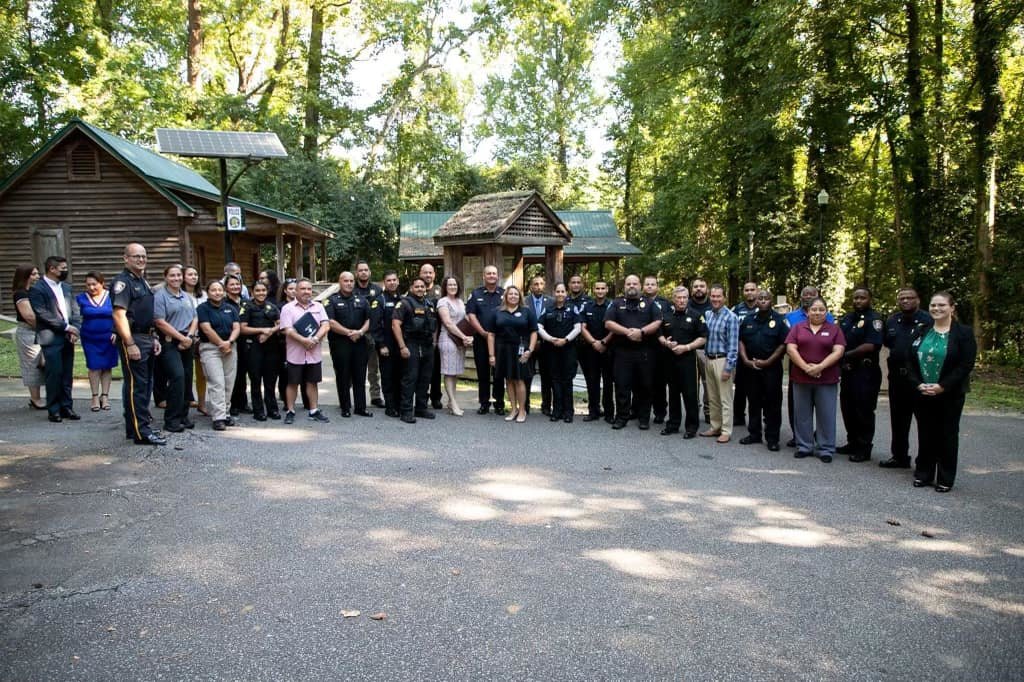Midlands Law Enforcement Agencies Band Together to Reach Hispanic Community
There is a sense of fear among Lexington County’s Hispanic residents when it comes to dealing with law enforcement, Lexington County Sheriff’s Deputy David Nieves told the Chronicle.
This item is available in full to subscribers.
Subscribe to continue reading. Already a subscriber? Sign in
Get 50% of all subscriptions for a limited time. Subscribe today.
Please log in to continueNeed an account?
|
Midlands Law Enforcement Agencies Band Together to Reach Hispanic Community
There is a sense of fear among Lexington County’s Hispanic residents when it comes to dealing with law enforcement, Lexington County Sheriff’s Deputy David Nieves told the Chronicle. The Hispanic victim advocate officer with the sheriff’s department, who is himself from Puerto Rico, talked about how language barriers and fear of deportation contribute to this anxiety.
The fear is what various local law enforcement entities want to face head on with the Si Se Puede initiative.
The initiative, which is named for the Spanish phrase translating to “Yes We Can,” kicked off in September to coincide with Hispanic Heritage Month, which lasts Sept. 15-Oct. 15.
The push began with the Cayce Police Department, which itself hosted a Fiesta event as an attempt to reach out to the Hispanic community in July.
“We want to provide service to everyone and there are people that fear and don’t trust,” Cayce Police Chief Chris Cowan said. “The way we break down the walls and get together is by talking and learning how we can work together.”
Central to Si Se Puede will be what the participating agencies — the Cayce Police along with the Lexington and Richland sheriff’s departments — hope will be a series of monthly forums, including members of the Hispanic community along with Serve & Connect, a Columbia-based nonprofit that seeks to help police and the public work better together.
“We sit and learn and go into the community and meet with people whether it’s events or going to the businesses or sitting with the forum members and talking,” Cowan said. “It’s a simple concept with very fruitful benefits.”
These talks allow all parties to talk openly about difficulties and help ensure that available resources are leveraged to address community issues, the chief explained.
Also key to the movement has been emphasizing the use of the app SayHi.
The free speak-to-talk app facilitates quick translation in more than 50 languages, allowing officers to overcome communication barriers.
But it’s not a cure-all, Cowan said, as there are still cultural nuances that officers must invest in learning.
“There are different dialects, different beliefs and learning about the challenges [Hispanics face],” the chief said.
Nieves said that an important message to put across to Hispanics is if they are being arrested, it’s because they broke the law, not because they are undocumented. U.S. Immigration and Customs Enforcement handles deportation, not the police or sheriff’s departments, he emphasized.
To build this trust, the departments are working with a variety of partners, including Lighthouse for Life,, a nonprofit dedicated to informing people about the dangers of human trafficking.
Sarah Von der Hellen, a representative for Lighthouse for Life, said one of the biggest ways traffickers control victims is by targeting their vulnerabilities. If Hispanics know little or no English, that is a huge vulnerability.
It can be scary for someone who doesn’t know English to be pulled over and have no idea what’s happening, she said, mentioning the SayHi app can help in this regard. She emphasized that officers want to help, regardless of a person’s legal residential status.
“We want to provide resources and help the law enforcement by making resources available,” said Von der Hellen.
Other items that may interest you







Comments
No comments on this item Please log in to comment by clicking here